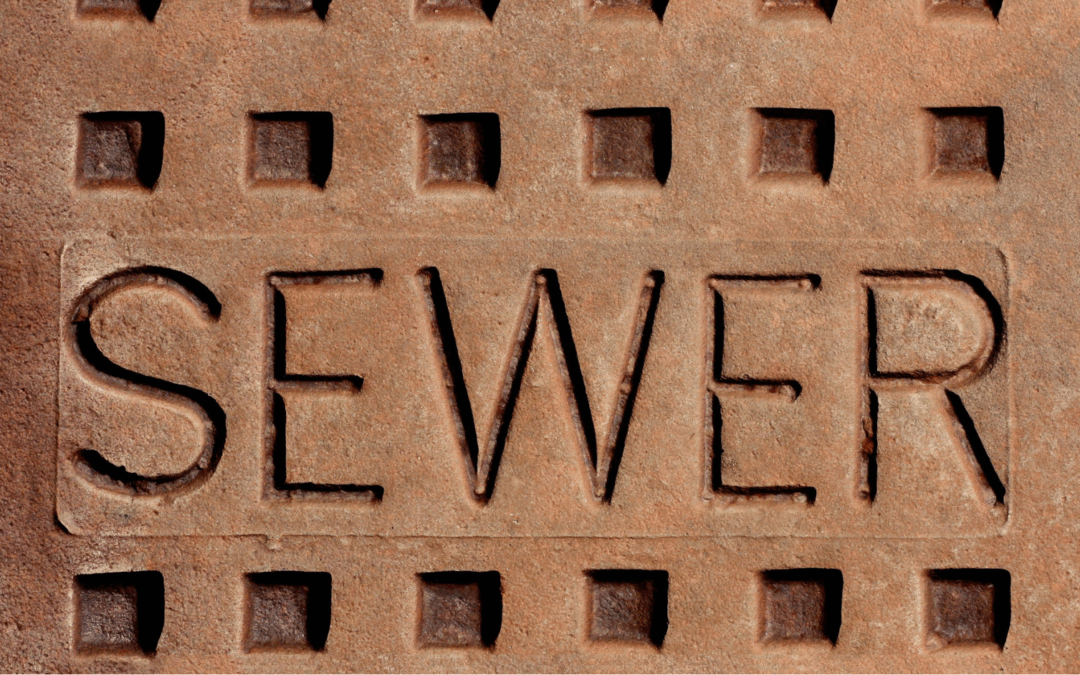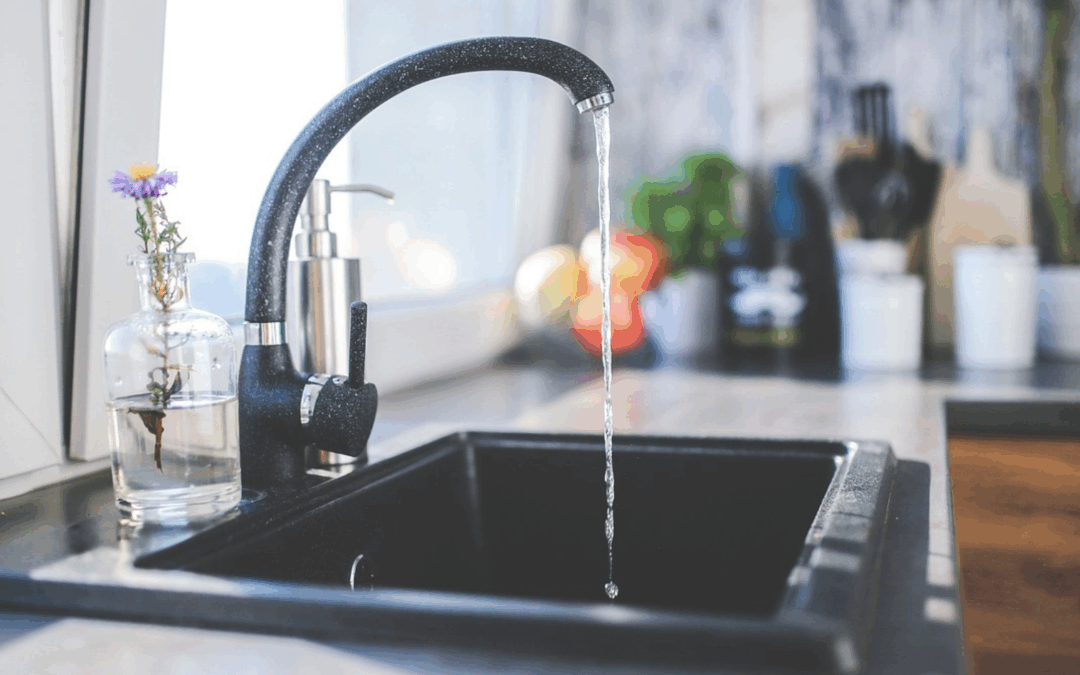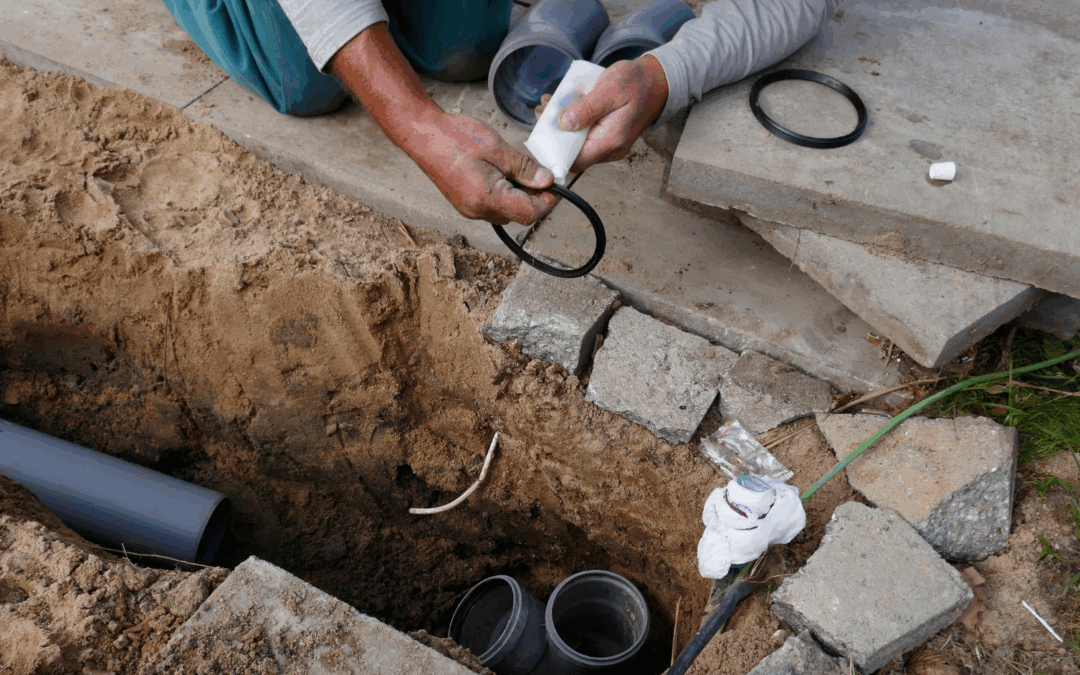Have you heard of plumbers grease?
When it comes to maintaining and repairing plumbing systems, the devil is often in the details. One such detail, that can significantly impact the longevity and efficiency of these systems, is the use of plumbers grease.
Despite its seeming niche role, plumbers grease plays a crucial part in plumbing maintenance, ensuring that components operate smoothly and are shielded from the ravages of corrosion and wear.
Schedule Service Online
Get a free estimate so you know what you're signing up for
"*" indicates required fields
For Emergency Services Call: 410-255-9300
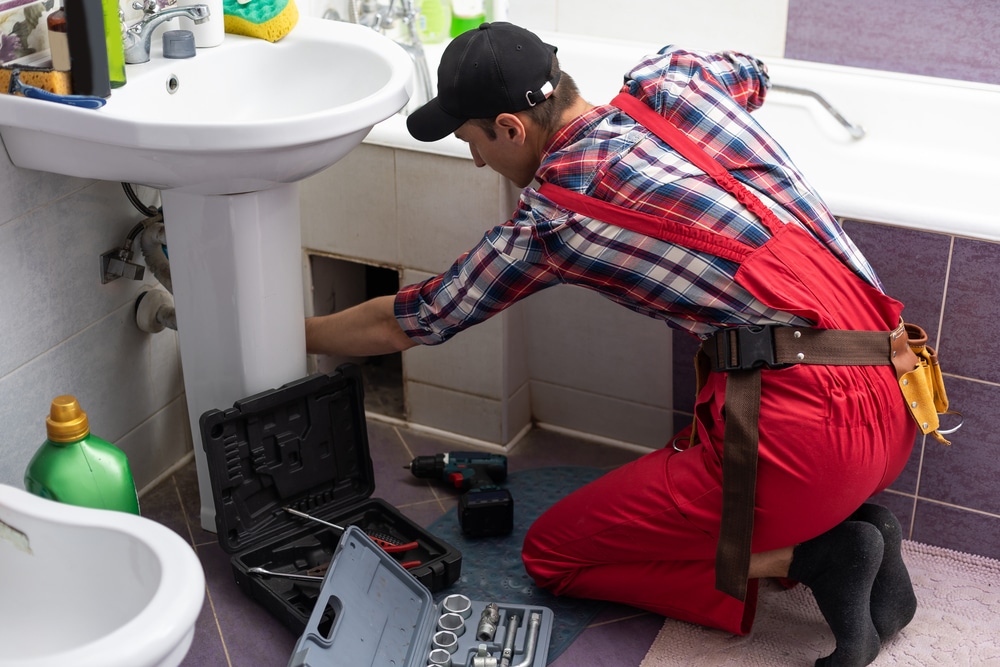
plumber at work in a bathroom, plumbing repair service, assemble and install concept
Understanding Plumbers Grease: A Beginner’s Guide
At its core, plumbers grease is a waterproof lubricant designed specifically for plumbing applications. Typically made from silicone or lithium, it’s crafted to withstand the moist and often chemically aggressive environment found within plumbing systems.
Primarily, it’s used to lubricate and seal moving parts such as O-rings, gaskets, cartridges, and valve stems, ensuring a water-tight seal and preventing the parts from sticking or seizing.
For those new to plumbing practices or DIY home repair, plumber grease might sound like a niche or complex product. However, it’s quite straightforward and immensely useful in various plumbing tasks.
Plumbers grease is a lubricant specially formulated for use in plumbing applications. Its primary role is to lubricate and protect plumbing components, such as valves, O-rings, faucets, and cartridges, ensuring they operate smoothly and are free from friction that can cause wear and tear over time.
Unlike standard lubricants, plumbers grease is designed to withstand the unique conditions found within plumbing systems.
This includes exposure to water, extreme temperatures, and pressure variations, without breaking down or causing damage to the components it’s applied to. Its composition typically includes silicone or lithium-based substances, making it resistant to water and safe for use with a wide range of materials including rubber and plastic.
The beauty of plumbers grease lies in its versatility and safety. It doesn’t harden, freeze, or wash away easily, which makes it an ideal choice for both repairs and preventive maintenance in household and commercial plumbing systems.
Whether you’re looking to fix a squeaky tap, ensure the smooth operation of moving parts, or protect new installations from future problems, plumbers grease is a go-to solution that helps extend the life of plumbing fixtures and fittings, safeguarding the efficiency and reliability of your water systems.
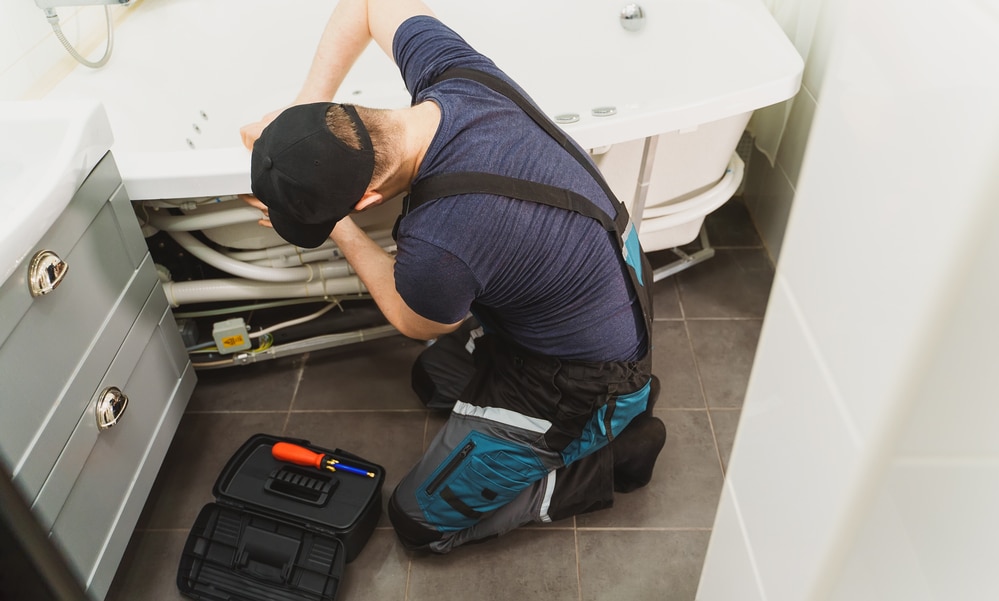
Man installing pipe system of bathtub with hydromassage.
The Benefits of Using Plumbers Grease
The advantages of employing plumbers grease in your plumbing fixtures are manifold. Firstly, its lubricating properties minimize friction among moving parts, reducing wear and tear and thereby prolonging their operational lifespan.
This easily translates into cost savings over time, with fewer replacements and repairs needed. Additionally, it helps in preventing corrosion, a common issue in plumbing systems due to constant water exposure.
The protective layer formed by plumbers grease shields the components from direct contact with water and other corrosive substances.
Environmental Considerations and Eco-friendly Options
In the context of environmental sustainability, the selection of plumbers grease becomes notably significant. Traditionally, many lubricants and greases used in plumbing have comprised substances that could pose risks to the environment.
However, recent advancements have led to the development of eco-friendly plumbers greases, which offer several benefits:
- Biodegradability: Eco-friendly plumbers greases are designed to break down over time, reducing the potential for environmental harm.
- Non-toxicity: These greases are formulated to be safe for use around water supply systems, ensuring that they do not contaminate water sources.
- Energy Efficiency: By maintaining the smooth operation of plumbing systems, eco-friendly plumbers grease can contribute to overall energy efficiency, reducing the environmental footprint of buildings.
In consideration of the planet’s health, opting for eco-friendly plumbers greases not only aligns with global environmental goals but also contributes to the longevity and efficiency of plumbing systems without sacrificing performance.
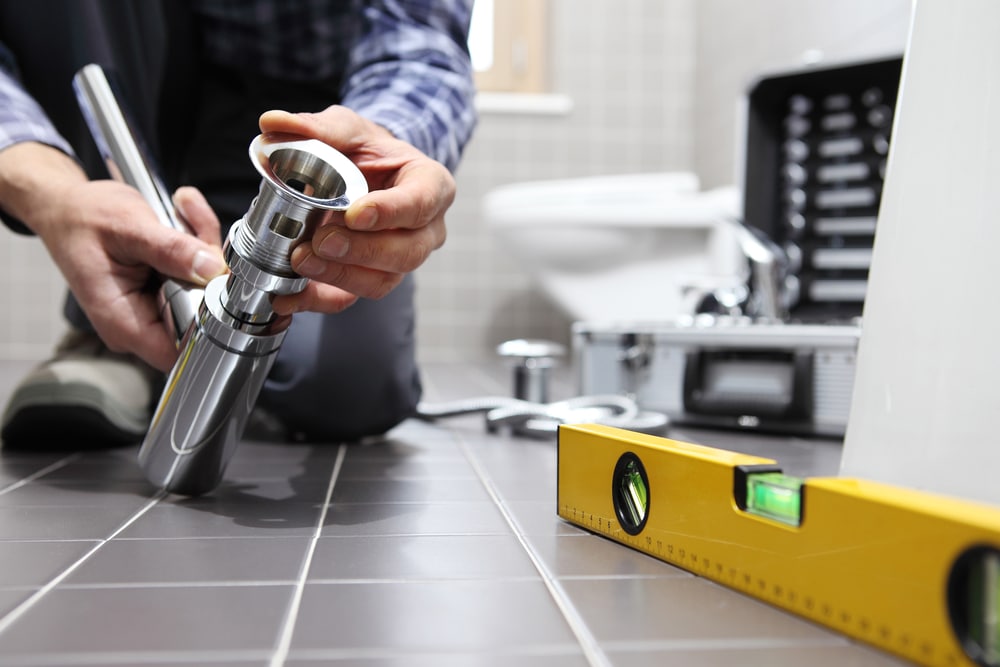
hands plumber at work in a bathroom, plumbing repair service, assemble and install concept
How to Apply Plumbers Grease
Applying plumbers grease is a straightforward process, but one that requires attention to detail to ensure effectiveness:
- Clean the parts that you intend to apply the grease to, removing any old grease, dirt, or debris.
- With a clean finger or a small brush, apply a thin, even layer of plumbers grease to the component’s surface where friction or contact occurs.
- Reassemble the parts carefully to avoid over-tightening, which can displace the grease and compromise the seal.
- It’s vital to note that less is more when it comes to applying plumbers grease; excessive grease can attract dirt or cause clogs in some scenarios.
Common Mistakes When Using Plumbers Grease
Some common pitfalls to avoid include using the wrong type of grease (e.g., not using a product specifically designed for plumbing applications) and applying too much grease, leading to clogged valves or seals.
Another mistake is neglecting to clean the component before application, which can limit the grease’s effectiveness.
Alternative Uses for Plumbers Grease
Beyond plumbing, this versatile grease has applications in various other maintenance tasks. In automotive work, it can be used on door hinges, brakes, and gears to prevent rust and enhance operation.
Within the home, it can mitigate squeaky hinges, ease the movement of stiff windows, and even protect garden tools from corrosion.
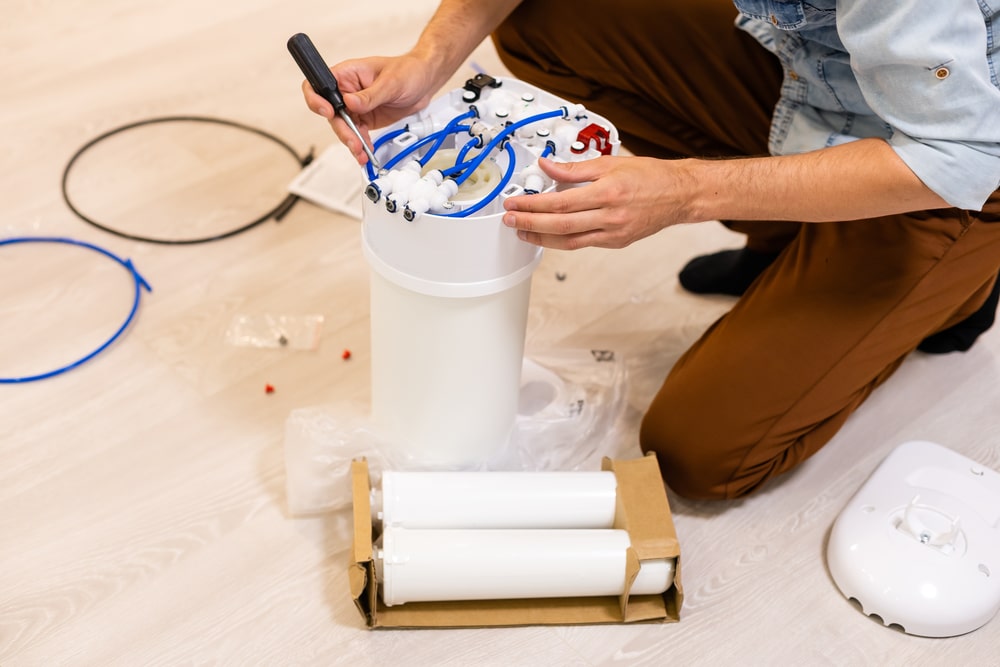
Plumber installs a water filter. water filter.
Practical Applications and Limitations of Plumbers Grease
Understanding the dos and don’ts of plumbers grease application can significantly influence the outcome of your plumbing projects. Here are examples of situations where plumbers grease is beneficial, as well as scenarios where it should be avoided:
When to Use Plumbers Grease
- Faucet O-Rings and Washers: When a faucet starts to drip, applying plumbers grease to the O-rings and washers can rejuvenate them and prevent leaks.
- Showerheads and Hose Connections: To ensure a smooth connection and to prevent future leaks, plumbers grease is ideal for threads on showerheads and hoses.
- Toilet Tank Mechanisms: Components inside the toilet tank benefit from plumbers grease to maintain their efficient operation without sticking.
When Not to Use Plumbers Grease
- On or Near Electrical Components: Plumbers grease should not be used in any situation involving electrical components, as its application can create a risk of short-circuits or electrical failures.
- Plastic Pipes and Fittings: Some plastic materials may not be compatible with plumbers grease, potentially leading to degradation of the plastic over time.
- Silicone Seals and Gaskets: If the product is not explicitly silicone-based, its application on silicone seals and gaskets might cause them to degrade or swell.
By familiarizing yourself with the appropriate and inappropriate uses of plumbers grease, you can ensure the longevity and reliability of your plumbing projects while avoiding common pitfalls that could lead to further issues.
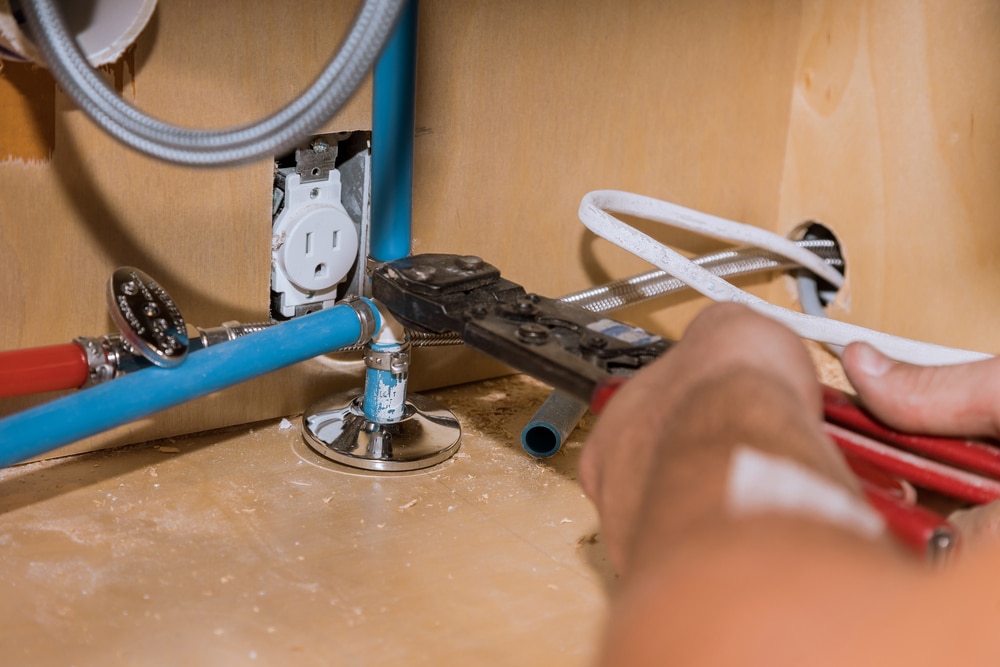
Repair in plumber installing assemble new mixer tap hands worker close up plumber tools and equipment in a bathroom
Frequently Asked Questions (FAQ) About Plumber’s Grease
Navigating the world of plumbing can often seem daunting, with numerous products and techniques at one’s disposal. To enrich your understanding and assist in making informed decisions, we’ve compiled a Frequently Asked Questions (FAQ) section about plumber’s grease.
This section addresses common queries and concerns, providing clear, concise answers that demystify aspects of using and selecting the right plumber’s grease for your plumbing needs.
Whether you’re a seasoned professional or a DIY enthusiast, these FAQs aim to enhance your knowledge, ensuring the longevity and reliability of your plumbing systems.
What is Plumber’s Grease Made Of?
Plumber’s grease typically consists of silicone grease or lithium-based substances, designed to withstand the moisture, pressure, and temperature variations in plumbing systems. It’s engineered to be resistant to water and compatible with a broad range of materials, including rubber and plastic.
Can Plumber’s Grease Be Used on All Types of Pipes and Fittings?
While plumber’s grease is safe for use on many materials, including metal, rubber, and certain plastics, it’s not suitable for all types of pipes and fittings.
For example, it should not be used on some plastic pipes and fittings as it can cause degradation over time. Always check the compatibility of the grease with the specific materials in your plumbing system.
How Does Plumber’s Grease Differ From Other Types of Lubricants?
Plumber’s grease is specifically formulated for plumbing applications, offering properties that make it ideal for conditions encountered in plumbing systems that are water resistant and stability under temperature fluctuations.
In contrast, other lubricants may degrade, wash away, or cause damage to plumbing components when used in these settings.
Is Plumber’s Grease Safe for Potable Water Systems?
Yes, when you select the appropriate plumber’s grease, it is safe for use in systems that handle potable water. Look for products that are certified for use in potable water systems to ensure they do not contain harmful substances that could leach into the water supply.
How Often Should Plumber’s Grease Be Reapplied?
The frequency of reapplication depends on the specific application and environmental conditions. For fixtures that are used frequently, checking and reapplying plumber’s grease annually can help maintain optimal performance. For less frequently used components, less frequent reapplication may be sufficient.
Can Plumber’s Grease Help Prevent Leaks?
Yes, plumber’s grease can help prevent leaks by maintaining a smooth, lubricated seal in components like O-rings and washers, reducing the likelihood of wear and tear that can lead to leaks. It’s particularly useful for rejuvenating aging rubber components, extending their service life.
Is There an Eco-Friendly Alternative to Traditional Plumber’s Grease?
Absolutely, there are eco-friendly alternatives available that are biodegradable and non-toxic. These options provide the same benefits as traditional plumber’s grease in terms of lubrication and protection but with less impact on the environment.
Look for products labeled as biodegradable or suitable for green buildings when shopping for eco-friendly plumber’s grease.

MD Sewer: Your Premier Choice for Plumbing Services
When it comes to addressing your plumbing needs, be they installation, maintenance, or emergency repair, MD Sewer stands out as the best option in the field.
Our team of licensed professionals not only brings expertise in applying the right products, such as plumber’s grease, to ensure the smooth operation and longevity of your plumbing systems but also stays at the forefront of utilizing eco-friendly alternatives for a sustainable approach.
Our commitment to excellence, coupled with our comprehensive understanding of the intricate dynamics of plumbing systems, enables us to provide tailor-made solutions that ensure your plumbing is always in peak condition.
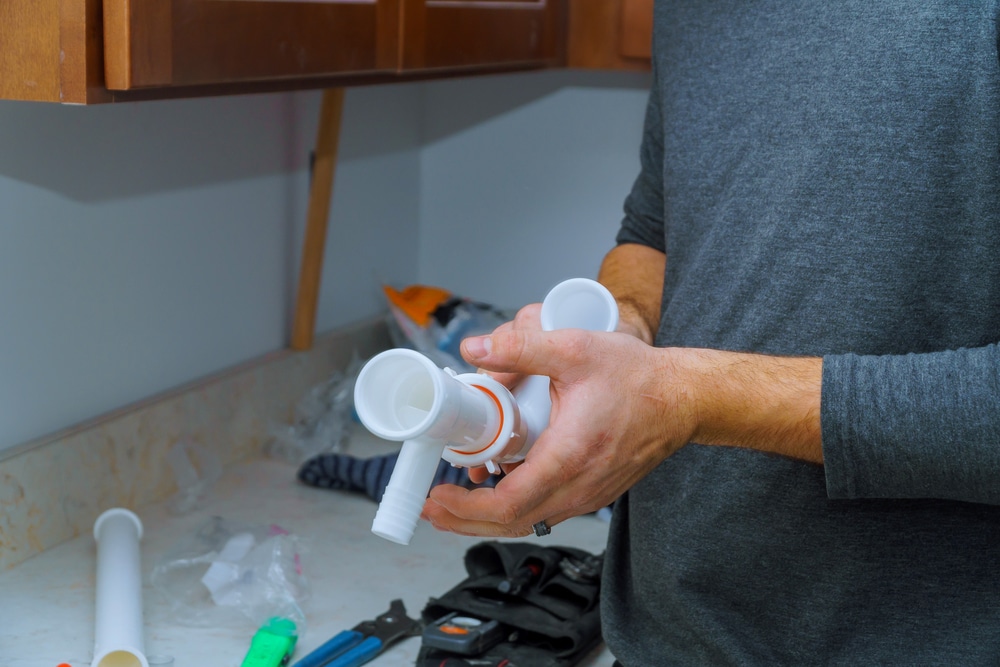
Hands plumber at work in a install a kitchen sink, plumbing repair service, assemble and install
Conclusion
In summary, plumbers grease is a small detail that can make a big difference in the longevity and functionality of plumbing systems.
By understanding how to apply it correctly, avoiding common mistakes, and considering its environmental and safety impacts, both DIY enthusiasts and professional plumbers can ensure that plumbing systems operate smoothly and efficiently for years to come.
The importance of including plumbers grease in your maintenance toolkit cannot be overstated – it’s a simple step with significant benefits.


